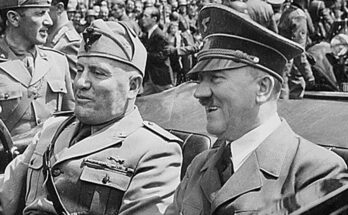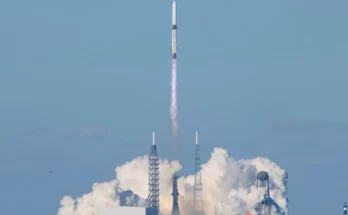Two twin robotic probes from NASA’s ESCAPADE mission finally lifted off this Thursday aboard a New Glenn rocket from Blue Origin, Bezos’ space company, from the Cape Canaveral base (Florida) at 3:55 pm. local time – 9.55pm Spanish Peninsula time – after two cancellations in the last few days. And 33 minutes later, exactly as planned, both probes were deployed into space and rotated around the Earth.
First, last Sunday, the launch was aborted due to high cloud conditions off the coast of Florida; and this Wednesday it was the weather conditions in space – due to an intense solar storm, which put all international agencies on alert and also showed the Northern Lights in Spain – that forced the take-off to be postponed again. These last days of waiting and postponements are common in this type of space missions like this one, which actually accumulates more than a year of delay and forced NASA to look for an unusual path to reach Mars.
The NG-2 mission is the second space flight of the New Glenn, the colossal 98 meter high rocket with which Blue Origin intends to compete with SpaceX and its Falcon 9 and Starship launchers. During its first test flight, successfully completed on January 16, it demonstrated its ability to put its upper capsule into orbit around the Earth. It’s an essential step to be able to deploy satellites – which SpaceX’s Falcon 9 now does several times a week – and also to place space probes into orbit that will self-propel from there to other worlds in the solar system. Increasingly, space agencies like NASA and ESA are turning to those same Musk rockets to launch these robotic, unmanned missions.
With the success of the NG-2, Jeff Bezos’ space company has demonstrated that it has the technical capacity to compete with Elon Musk’s and share the commercial space launch pie with him. Until now, Blue Origin had only dedicated itself to space tourism, with the suborbital flights of its small New Shepard rocket, which simply took passengers into space for a few seconds who, like the Spaniard Jesús Calleja, occupied one of the very expensive seats and then received an astronaut pin that in reality is not valid.
For Blue Origin, with this Thursday’s mission the first chapter of its history of space exploration begins to be written. Suborbital flights for celebrities and billionaires, like Bezos himself, were just prologue. Ahead of us, there is still a long way to go to catch up with SpaceX, which year after year breaks historical records for the number of launches and tons of cargo loaded into Earth orbit. But this Thursday Blue Origin demonstrated that it can also recover the main propellant of its superrocket, which is essential for reusing them as SpaceX does.
(Latest news. There will be an update soon)



